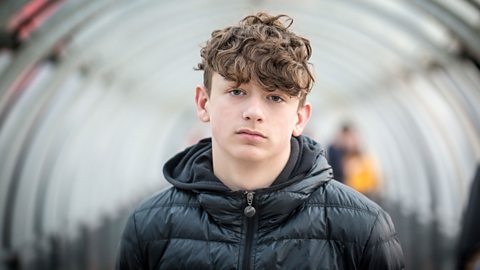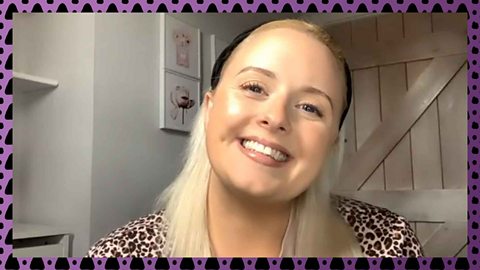We know that humans are social creatures. And we understand that happiness is sometimes linked to our connections with others, whether that be with friends, family members or romantic partners. We also know that healthy relationships contribute to mental wellbeing and self-respect, but what does a healthy relationship look like?
How do humans develop and continue to grow positive bonds with each other? We all know words like loyalty and trustā¦ but how can we actually spot when a relationship is brilliant? We asked the team at It Happens Education, who deliver sessions to parents, teachers, and students in schools, to let us know their thoughts on the signs of happy, healthy, nourishing connections in our lives. Here they are:

1. Honesty and communication is a good one to start with. Communication happens in so many different ways in all relationships. Some people communicate with their phones, their words, their images, their writing, their eyes. Reflect on how you communicate with someone in your lifeā¦ Does it feel easy? Are you both really, really brilliant at communicating with each other? Like REALLY good at communicating? Different relationships allow for different levels of openness and honestyā¦ So with some people you may be guarded, while with others you may be able to communicate your innermost self. Can you talk about your emotions accurately and sensitively? And can you listen to each other? Like REALLY listen to each other? Taking it in turns. Do you feel safe to share and do you feel heard?
2. Kindness and mutual respect is a big one. But what does being ākindā actually mean? What do you understand by this term? Being kind to you? Being kind to them? What if being kind to someone else means that you arenāt being kind to yourself anymore? Aghhhā¦ it can be really tough. Ultimately, itās no good if one person has all the power. There shouldnāt be leaders in relationships. So this is about equality. Does one person do all the talking & asking and the other does all the listening & allowing? Or are you both able to have ideas, to initiate plans and make suggestions? Are you both able to negotiate and compromise? In a clear, kind and honest way? Kind relationships should demonstrate fairness. Think of it like a set of scalesā¦ are they balanced?
3. Shared interests and shared outlooks can be helpful in relationships. Time is precious. We spend so much time in lessons at school learning, and actually quite a lot of our time asleep. So the bits in between are important for fun, connection and making memories. Have a think about the time you spend with other peopleā¦ are you actively choosing to do that thing or are you just āgoing along with itā. Whether itās gaming, making a smoothie, playing football, watching pranks, gazing up at the clouds or snuggling up with a movieā¦. Itās important that everyone involved wants to be doing that thing. That it makes you smile. That it feels easy. Time flies when youāre having fun ā when youāre lost in the moment, when youāre really present and being the real you.
4. Boundaries and consent are essential in all our relationships. And when this bit is right on both sides, relationships can really blossom and grow. Weāve been practising consent from day one. Since we were tiny. Learning about our boundaries. What are we okay with? What doesnāt feel right? Asking for permission, listening to the answer, compromising, negotiating and often, finding a āhappy mediumā. Siblings have been learning how to take it in turns, friends work out how to share, people you hang out with at school teach you how to compromise, your teammates develop an understanding of where your limits are! So this is about finding an agreement. Checking in with each other. Reading body language. Using your words to make sure that you are both really understanding the situationā¦ āAre you okay with this?ā Donāt underestimate the complexities of consentā¦ it isnāt always easy. Keep asking yourselfā¦ Do you genuinely have a voice and a choice?
5. Aim for authenticity, which is really all about being the ārealā you in all of your relationships. And letting others be the real them. But we know this isnāt simple. Especially when weāre all working out āwho am I?ā all of the time. And it can be even more confusing in our digital worlds full of texts, chats, filters and editsā¦ Who is the genuine you? Do your words and behaviours match? People donāt always say what they mean. Sometimes they donāt mean what they say. Some folks pretend. Or fake it or make excuses. Others just go along with it (for lots of complicated reasons). For relationships to be safe ā you need to be able to explore who the real you is, without fear of judgement. No filters, no edits, no pretending. Real feels. Getting to know āyouā can take time, as we grow and develop. And of course, we can change over timeā¦
6. Being generous and respecting privacy is a really good sign that your relationship is happy and healthy. And we donāt mean generous with stuff. We know that sometimes young people can feel suffocated by the intensity of a friendship or a relationship. As if someone is trying to āownā them. But if a person is really good for you ā they will encourage connections with others. They will want you to have hobbies, to have other friends, to have parts of your world that they arenāt in. And thatās beneficial for everyone. Is this something you are both comfortable with? Something you can both accept and encourage? Remember you donāt have to spend every minute of every day together. You donāt have to reply to every text immediately. You are allowed some time out. And you can ask for some privacyā¦ Take the pressure off!
7. Dealing with conflict, reconciliations and endings is a skill. Not all friendships and relationships last forever. You are inevitably going to stumble and trip along the way, and knowing how to manage the tricky times is key. Humans are complicated. This means that sometimes our relationships with others arenāt straightforward. Things might not work out exactly as planned. Sometimes you will need space. Sometimes you will need to talk. Sometimes you might need to apologise. If this is really tricky for you to do face-to-face, then maybe you can text or write them a letter. Challenging conversations need to happen ā and these can be gentle and calm. And guess what? CONNECTING! When you work through a difficult moment in a relationship ā you often come out the other end stronger, knowing each other better, and more emotionally connected. And if the other person doesnāt want to work though that with you ā in a meaningful way ā then you might have to consider an ending. Going different ways isnāt always a bad thing. It might feel like agony at the timeā¦ but it frees you up to go and find other more happy, healthy and balanced connections!
It's important to remember:
If you donāt feel heard in a relationship ā you are allowed to ask that person to do better.
If you arenāt able to be the real āyouā in a relationship ā you must tell someone. It is important not to keep these thoughts secret. A problem shared is often MUCH easier to manage.
If consent is complicated and your boundaries are being compromised ā you must be brave enough to tell this to a safe adult. They can usually help you untangle things!
If you feel that someone is pretending to be something they are not, can you reassure them that it is better to be their authentic self?
If the power dynamic in a relationship feels wonky ā you need to address this ASAP! As a matter of urgency. Are you brave enough to talk to another friend or family member about this?
If you ever feel that someone is limiting your connections with other people ā it is really important that a safe adult knows that you are feeling isolated. Could you seek support at school? You could ask for a Safeguarding-trained professional to help you ā they are very good at supporting young people at these tricky momentsā¦
The main thing to remember is that when relationships are great, they are REALLY great. But that all relationships need nurturing and they are sometimes hard work. However, if you are constantly finding yourself in conflict moments, bickering, arguing and unable to communicate ā there will definitely be adults you can talk to at home, in school, or you can even ask the nurses & doctors at your local NHS surgery. There is ALWAYS someone there to help you ā it shouldnāt feel overwhelming.


If you need support
You should always tell someone about the things youāre worried about. You can tell a friend, parent, guardian, teacher, or another trusted adult. If you're struggling with your mental health, going to your GP can be a good place to start to find help. Your GP can let you know what support is available to you, suggest different types of treatment and offer regular check-ups to see how youāre doing.
If youāre in need of in-the-moment support you can contact , where you can speak to a counsellor. Their lines are open 24 hours a day, 7 days a week.
There are more links to helpful organisations on “óĻó“«Ć½ Action Line.

Understanding feelings of anxiety and low mood
Advice from a consultant psychologist on understanding and managing difficult feelings

Vaping and peer pressure: what you need to know
We take a look at some of the risks from vaping and how to confidently say no if you get peer pressured to vape.

How to support a friend with their mental health
Katie Thistleton with advice from Young Minds on how to support a friend with their mental health.
